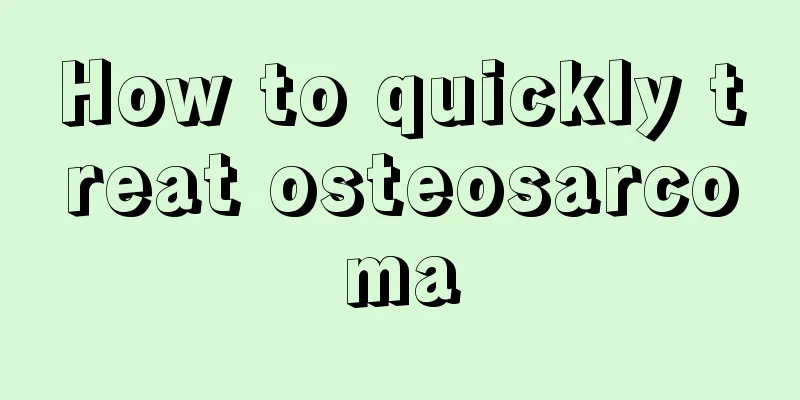Persimmon's effects and contraindications

|
In life, many people like to eat tree persimmons. Tree persimmons are a kind of persimmons that grow on trees, and the trees are very tall. The color of the persimmon is yellow. Many people like to eat frozen persimmons in winter, which means picking fresh persimmons and putting them in the yard, freezing them hard, and then eating them after the ice melts. Moreover, the persimmons are kept frozen and can be stored for a relatively long time. So what are the effects and contraindications of persimmons? 1. Nutritional value and efficacy of persimmon: Persimmon has the effects of clearing heat and moistening the lungs, promoting fluid production and quenching thirst, strengthening the spleen and benefiting the stomach. "Compendium of Materia Medica" says: "Persimmon is a fruit that belongs to the spleen, lung and blood. It tastes sweet and has a flat aroma, is astringent and can astringe, so it has the functions of strengthening the spleen, astringing the intestines, curing cough and stopping bleeding." Eating fresh persimmons raw can treat lung heat and dry cough, hemoptysis, and hemorrhoid bleeding; mashing fresh persimmons to extract juice and drinking it with warm water can treat goiter; 250 grams of unripe fresh persimmons, chopped and extracted juice, and drank it with boiled water can treat thirst and dry mouth caused by stomach heat and yin damage. 2. Foods that cannot be eaten with persimmons include: 1. Crabs: Food poisoning symptoms such as vomiting, abdominal distension, and diarrhea may occur. Persimmons and crabs are both cold in nature. Eating them together will damage the spleen and stomach. Crabs are rich in protein. When you eat crabs while eating persimmons, the protein in the crabs meets the tannic acid in the persimmons and may coagulate in the human stomach, turning into lumps that are difficult to digest and absorb, causing symptoms such as abdominal pain, vomiting, or diarrhea. 2. Alcohol: causes intestinal obstruction Persimmons are cold in nature, while wine tastes spicy and slightly bitter, and is very hot and poisonous. Alcohol entering the stomach stimulates increased intestinal secretions. The tannic acid in persimmons meets the stomach and forms a thick and sticky substance, which is easily entangled with cellulose to form clots, which are difficult to digest and excrete, causing intestinal obstruction over time. 3. Sweet potatoes: They are prone to causing gastric persimmon stones, which can cause gastric perforation and endanger life. Sweet potatoes contain a lot of starch, and eating them will produce a lot of gastric acid in the stomach. If you eat some persimmons at the same time, the persimmons will precipitate under the action of gastric acid. When the sediments accumulate together, they form water-insoluble lumps that are difficult to digest and excrete. People are prone to gastric persimmon stones, and in severe cases, gastric perforation can occur, which is life-threatening. 4. Kelp: causes gastrointestinal discomfort When kelp rich in calcium ions and persimmons rich in tannic acid are eaten together, the calcium ions in the kelp can combine with the tannic acid in the persimmons to form insoluble complexes, which can easily affect the digestion and absorption of certain nutrients and cause gastrointestinal discomfort. 5. Acidic vegetables: may cause gastric stones After eating persimmons, please do not drink too much acidic vegetable soup or too much water. After eating sauerkraut, a large amount of hydrochloric acid will be produced in the human stomach, which will react with the gastric acid produced by persimmons in the stomach to produce precipitation. The precipitates accumulate together to form water-insoluble lumps, thus causing gastric stones. 6. Octopus: Damages the stomach and intestines and can easily cause diarrhea Octopus tastes sweet, salty and cold, is non-toxic, and has a cold but non-draining medicinal property, which can nourish the blood and replenish qi. Persimmon is sweet and astringent and cold in nature, which belongs to the cold medicinal property, so the two should not be eaten together, otherwise it will damage the stomach and intestines and easily cause diarrhea. The above-mentioned foods cannot be eaten with persimmons, so everyone should be more careful to avoid harm to the body. Health starts from every little thing in life. |
<<: The efficacy and function of tiger amber
>>: The efficacy of fragrant wood
Recommend
The efficacy of drinking water soaked with Polygonatum sibiricum and Atractylodes macrocephala
Drinking water soaked with Polygonatum sibiricum ...
What medicine is better for neurogenic edema?
The water content in the body is relatively balan...
Will getting angry cause blurry eyes?
The hot weather in summer can easily lead to the ...
Can Hepatitis B virus (HBV) be cured?
Compared with hepatitis B, hepatitis B virus (HBV...
Can I get cervical cancer at the age of 20
The chance of developing cervical cancer at the a...
How to improve self-control
Self-control, or self-control, is a relatively im...
Does saliva disinfect?
An adult secretes a large amount of saliva every ...
How long does it take to have abdominal pain after a total hysterectomy? How to take care after a total hysterectomy
After a total hysterectomy, abdominal pain will o...
Eight causes of chest and back pain
In daily life, we often encounter some sudden pai...
How to strengthen the prevention of lung cancer? 4 most effective ways to prevent lung cancer
As we all know, lung cancer is the most serious t...
Common risk factors for endometrial cancer
Cancer has always been a word that people are mos...
What sequelae will patients with nasopharyngeal carcinoma have?
What are the sequelae of nasopharyngeal carcinoma...
What to do if your nose gets tanned
The nose is prone to tanning in daily life, espec...
What is the cause of chrysanthemum itching
The anus is the human anus. There is a circle of ...
How to detect pesticide residues in tea
Tea is a drink that is deeply loved by people in ...









